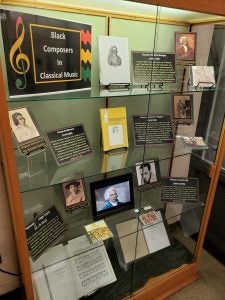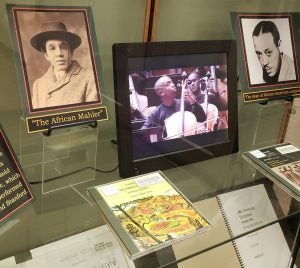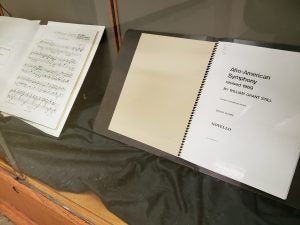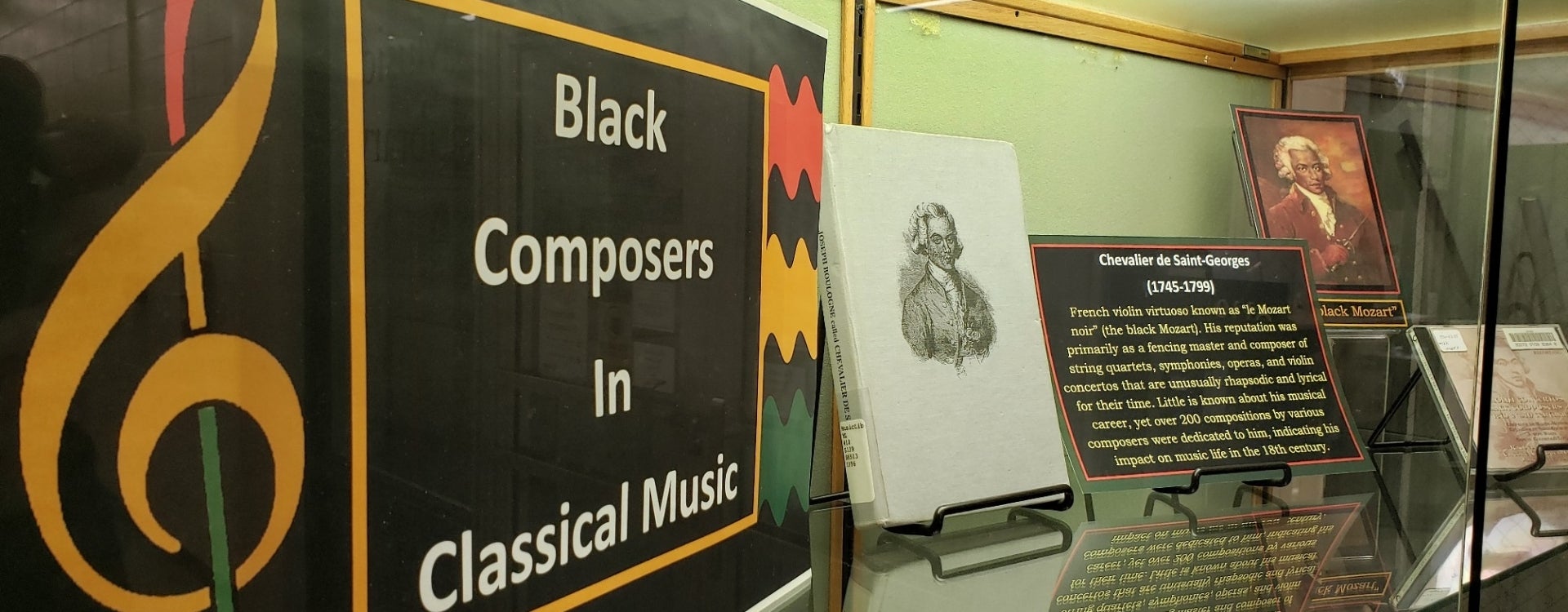Music Library highlights Black composers in classical music
In celebration of Black History Month, the Music Library is highlighting Black Composers in Classical Music. The display showcases marginalized composers who made an impact on classical music between the 18th and 20th centuries.
Not many will have heard of Chevalier de Saint-Georges (1745-1799), known in his day as “le Mozart noir” (the black Mozart). This French nobleman was a renowned fencing master, violin virtuoso, and composer of string quartets, violin concertos, symphonies, and operas. Little is known about his musical career, yet over 200 compositions by various composers were dedicated to him, indicating his impact on music life in the 18th century.
British violinist and composer George Bridgetower (1778-1860) is most famous in the annals of music history for being the original dedicatee of Beethoven’s Kreutzer Sonata. In addition, he was the first violinist in the Prince of Wales’ private orchestra, and enjoyed the life of a touring virtuoso in Europe. Bridgetower composed a small number of pieces, including a violin sonata now lost.
While virtuosos like Paganini and Liszt were household names in the 19th-century, so too was Thomas “Blind Tom” Wiggins (1849-1908), at least in the United States. This musical prodigy—blind and likely autistic—was born into slavery and marketed as a P.T. Barnumesque freak at the age of eight. Blind Tom wowed audiences with his memory and virtuosity (he could play three pieces simultaneously, one in each hand while singing the third), and had an uncanny ability to imitate sound effects on the piano. His best known composition is Battle of Manassas (1861), an impressionist piano piece evoking war drums, cannon fire, interweaving patriotic medleys together, and directing the pianist to whistle during the performance.
In the pantheon of British composers, Samuel Coleridge-Taylor (1875-1912) ranks among the greats of the late 19th century. This composer, conductor, and professor was called “the African Mahler” by his contemporaries. He incorporated African music into his works, his most famous composition being the cantata Hiawatha’s Wedding Feast (1900), which sold hundreds of thousands of copies. Although he died young at the age of 37, his music, which includes 82 opus numbers, was widely performed and championed by major British composers during his lifetime.
The last composer featured in this display is William Grant Still (1895-1978), who was particularly trailblazing for his achievements. He was the first African-American to have a symphony performed by a major orchestra, the first to conduct a major orchestra, and the first to have an opera produced by a major company. He composed over 150 works, often turning to blues for his main source of material, which he integrated into his popular Afro-American Symphony (1930).
Check out these books in the music library to learn more about these extraordinary composers:
Panton, Clifford D., Jr. George Augustus Polgreen Bridegetower, Violin Virtuoso and Composer of Color in Late 18thCentury Europe. Lewiston, NY: E. Mellen Press, 2005. [ML418.B645 P36 2005]
Smidak, Emil F. Joseph Boulogne, Called Chevalier de Saint-Georges. Lucerne, Switzerland: Avenira Foundation, 1996. [ML410.S139 S6513 1996]
Smith, Catherine Parsons. William Grant Still. Urbana, IL: University of Illinois Press, 2008.[ML410.S855 S64 2008]
Southall, Geneva H. Blind Tom, the Black Pianist-Composer (1849-1908): Continually Enslaved. Lanham, MD: Scarecrow Press, 1999. [ML417.B3 S68 1999]
Tortolano, William. Samuel Coleridge-Taylor: Anglo-Black Composer, 1875-1912. Lanham, MD: Scarecrow Press, 2002. [ML410.C74 T7 2002]
And stop by the Music Library in Fletcher to explore more.



